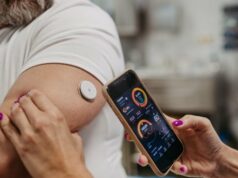
A clinical trial has begun to test a new treatment for type 1 diabetes involving a cell pouch which could mimic a pancreas.
The London-based regenerative medicine company Sernova is aiming to build on recent advances in islet cell transplantation – the replacement of destroyed beta cells using cells harvested from donors. Their Cell Pouch device is an example of encapsulated islet cell therapy which is an emerging area of treatment for type 1 diabetes.
They hope that by being able to mimic a natural pancreas, their device could help people with type 1 diabetes experienced improve blood glucose levels and reduce the burden of diabetes management.
The technique involves a pouch containing islet cells being placed under the skin which naturally grows into the surrounding tissue and enables blood vessels to flow through it.
The first person with type 1 diabetes has registered to take part in the research, with the first cohort expected to be enrolled by the end of January and the full enrolment due by this summer. The study is taking place at University of Chicago and expected to be completed within three years.
The scientist leading the study is Dr Piotr Witkowski, who is the Director of the Pancreatic and Islet Transplant Program at University of Chicago School of Medicine.
“There is a real need for new treatment options in the field of type 1 diabetes. Due to Sernova’s novel approach to demonstrate vascularization of the Cell Pouch and remarkable preclinical and first-in-human data, we are hopeful this study will provide a new functional therapeutic option in the treatment of patients with diabetes,” said Dr Witkowski.
Sernova’s president and CEO Dr Philip Toleikis added: “In our pilot first in-human study, Sernova’s regenerative medicine approach, involving therapeutic cells within Sernova’s Cell Pouch, showed surviving vascularized islets able to produce all the hormones necessary to control blood glucose levels.
“Based on these positive initial results, we expect our therapeutic approach will demonstrate continued safety and therapeutic benefit to people suffering from type 1 diabetes.”








